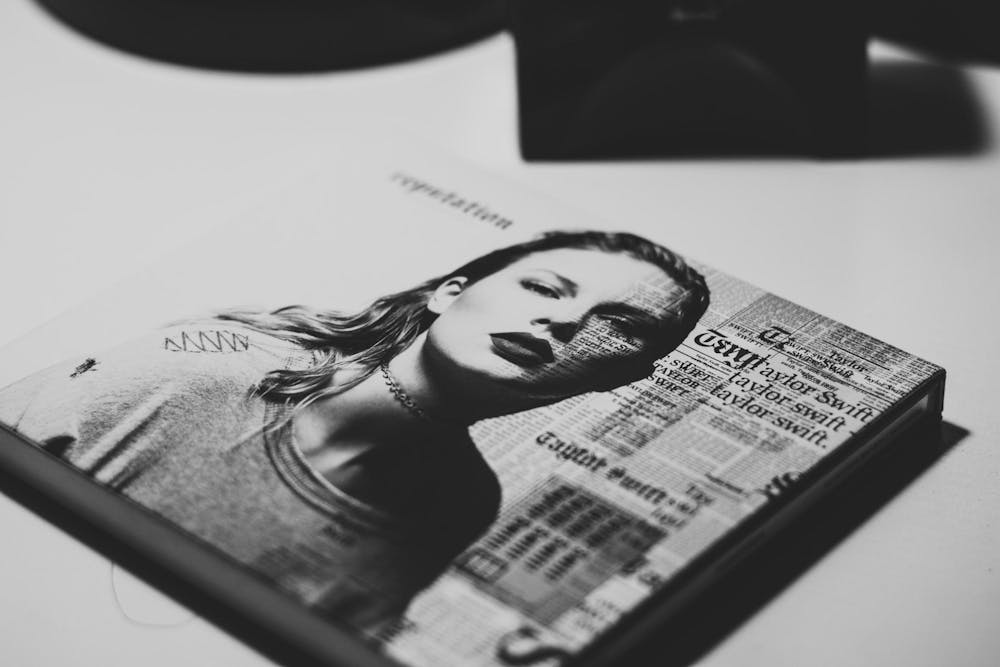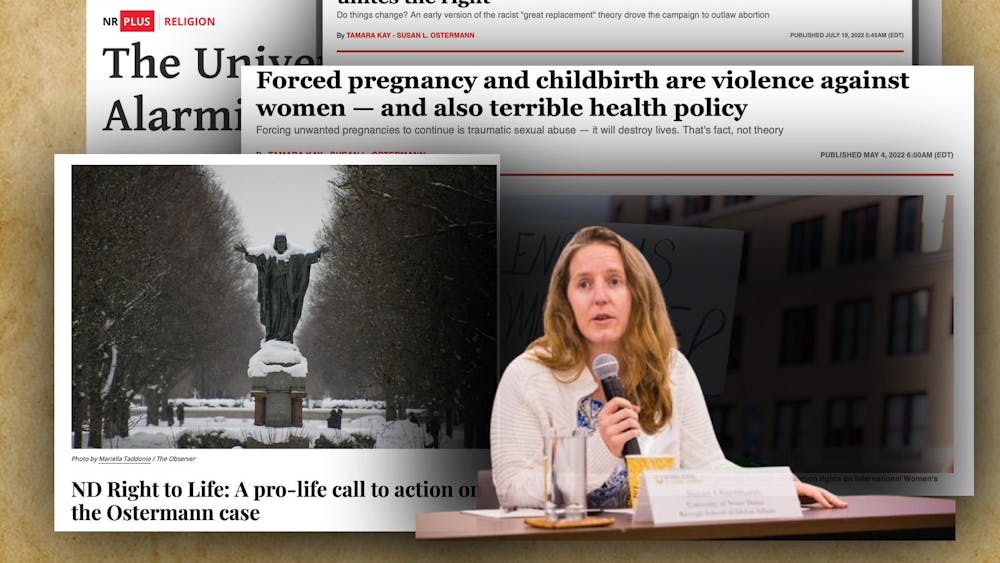“Did you hear my covert narcissism I disguised as altruism —like some kind of congressman?”
When you hear the name “Taylor Swift,” what political labels come to mind? Democrat? Progressive? Liberal? Feminist? Although many Americans use politically blue-coded terms to describe the megastar, it is entirely conceivable that some of the population associates Swift with bipartisanship — or does not associate Swift with politics whatsoever. After all, Swift was considered the most bipartisan musician in the country less than a decade ago. This news may come as a surprise and understandably so. In recent years, it has become increasingly difficult to separate Swift from her toe-dips into the American political conversation.
We live in the digital era. The omnipresence of the internet and social media in our daily lives grants us greater access to our political systems than ever before. Political engagement is quite literally at our fingertips. It is important to note that while the flow of political information online has dramatically increased, so too has the spread of political opinion. This is not an inherently bad thing. However, as the age demographic of internet and social media users becomes younger, we must acknowledge the potential for public figures to exert political influence and shape the political opinions of Americans — young and old.
What role, if any, should celebrities play in politics? Taylor Swift broke her political silence in 2018. After years of transcending the political divides in our country, the multi-Grammy award-winning artist took to social media to make her first public political endorsement. In a post urging her followers to vote in the upcoming midterm elections, Swift endorsed Tennessean Democratic candidates Phil Bredesen and Jim Cooper for Senate and House of Representatives seats, respectively. Swift captioned the post: “In the past I’ve been reluctant to publicly voice my political opinions, but due to several events in my life and in the world in the past two years, I feel very different about that now.”
Swift also took to social media to condemn the actions of former President Donald Trump. After remaining silent during the 2016 presidential election, she boldly tweeted in 2020: “After stoking the fires of white supremacy and racism your entire presidency, you have the nerve to feign moral superiority before threatening violence?...We will vote you out in November.” Once notorious for her apoliticism, Swift is slowly abandoning her left-right equipoise.
In October 2022, Swift released a music video to accompany her hit “Anti-Hero.” In addition to lyrics explicitly criticizing the performative activism of members of Congress, or “covert narcissism [they] disguised as altruism,” Swift dons a political pin that reads “Vote for me for everything.” If it was not clear enough already, Swift is not afraid to share her political opinion from time to time — a cause for both great hope and great concern as we head into 2024.
Flash forward to today: Swift has left behind a more-or-less subtle trail of liberal breadcrumbs for fans and critics alike to pick apart. Swift’s cultural dominance has withstood the test of time, but her ability to indulge both the conservative and liberal members of her fanbase is a thing of the past. In fact, it is becoming more and more difficult for Swift to fully satisfy even her progressive supporters.
As the saying goes: damned if you do, damned if you don't. An anti-hero is defined as the main character of a story, but one who does not act like a typical hero. When it comes to politics, it is impossible to satisfy everyone even with the best intentions. Swift is operating under a merciless microscope — the motive for any political action that she takes will be carefully questioned and criticized. Swift can undoubtedly sway political opinions, but she will struggle to be perceived as a heroine as long as she continues to make enemies on both sides of the aisle.
Currently, Swift is stuck between a rock and a hard place. Swift’s decisions to endorse democratic candidates and proudly support the LGBTQ+ community have appeased many of her progressive supporters over the years, but have also unleashed a new set of haters. While she is no stranger to backlash for publicly expressing her left-leaning views, many of her progressive fans remain disappointed in her silence on other contemporary political issues.
While Taylor Swift may be America’s political anti-hero, fans and haters alike must recognize her global influence and soft political power in the United States. After all, there are tangible examples of her impact. On National Voter Registration Day in 2023, Swift was intent on galvanizing her social media followers to register to vote. Swift shared a link to Vote.org, a non-profit voting registration platform and organization that she has partnered with in the past. Vote.org recorded more than 35,000 new registrations after the post went live. Additionally, the number of 18-year-olds that registered doubled the amount that did in 2022. When Swift speaks, her fans listen. As we look ahead to the 2024 presidential election, public figures like Taylor Swift could play a crucial role in mobilizing voters and increasing youth voter turnout.
California governor Gavin Newsom labeled Swift’s political influence as “profoundly powerful,” especially her ability to inspire young people to “consider that they have a voice and they should have a voice in the next election.” As we look ahead to the 2024 presidential election, we must be careful to avoid underestimating the impact of Swift and her hundreds of millions of followers on the political conversation in our country. I, for one, am eager to see if Swift will decide to ditch political toe-dipping and play a more active role come November.
Ashlyn Poppe is a third-year student living in Pasquerilla West Hall studying global affairs and public service. She currently serves as the President of BridgeND.
BridgeND is a multi-partisan political club committed to bridging the partisan divide through respectful and productive discourse. It meets bi-weekly on Mondays at 7 p.m. in Duncan Student Center to learn about and discuss current political issues and can be reached at bridgend@nd.edu.










